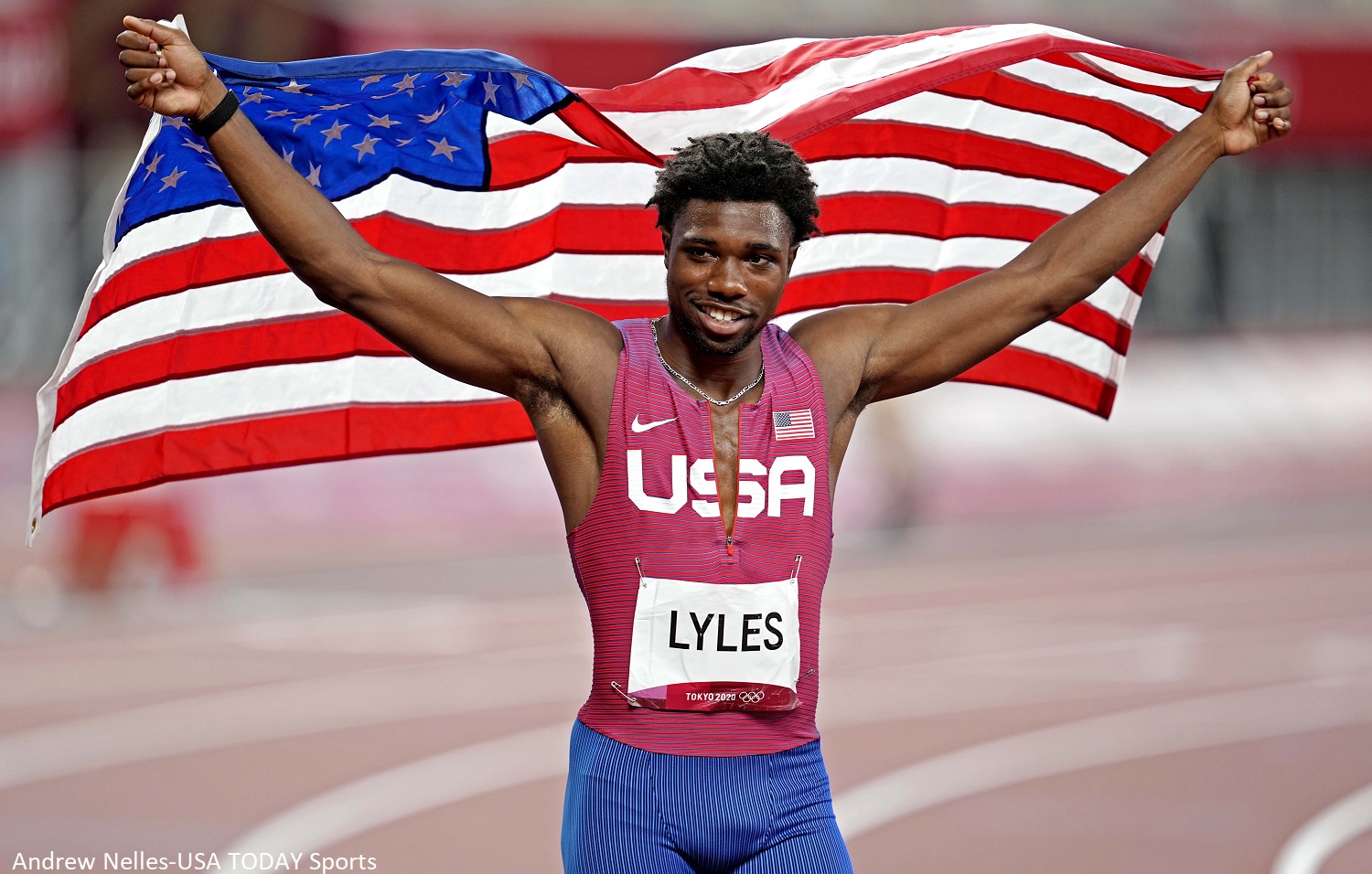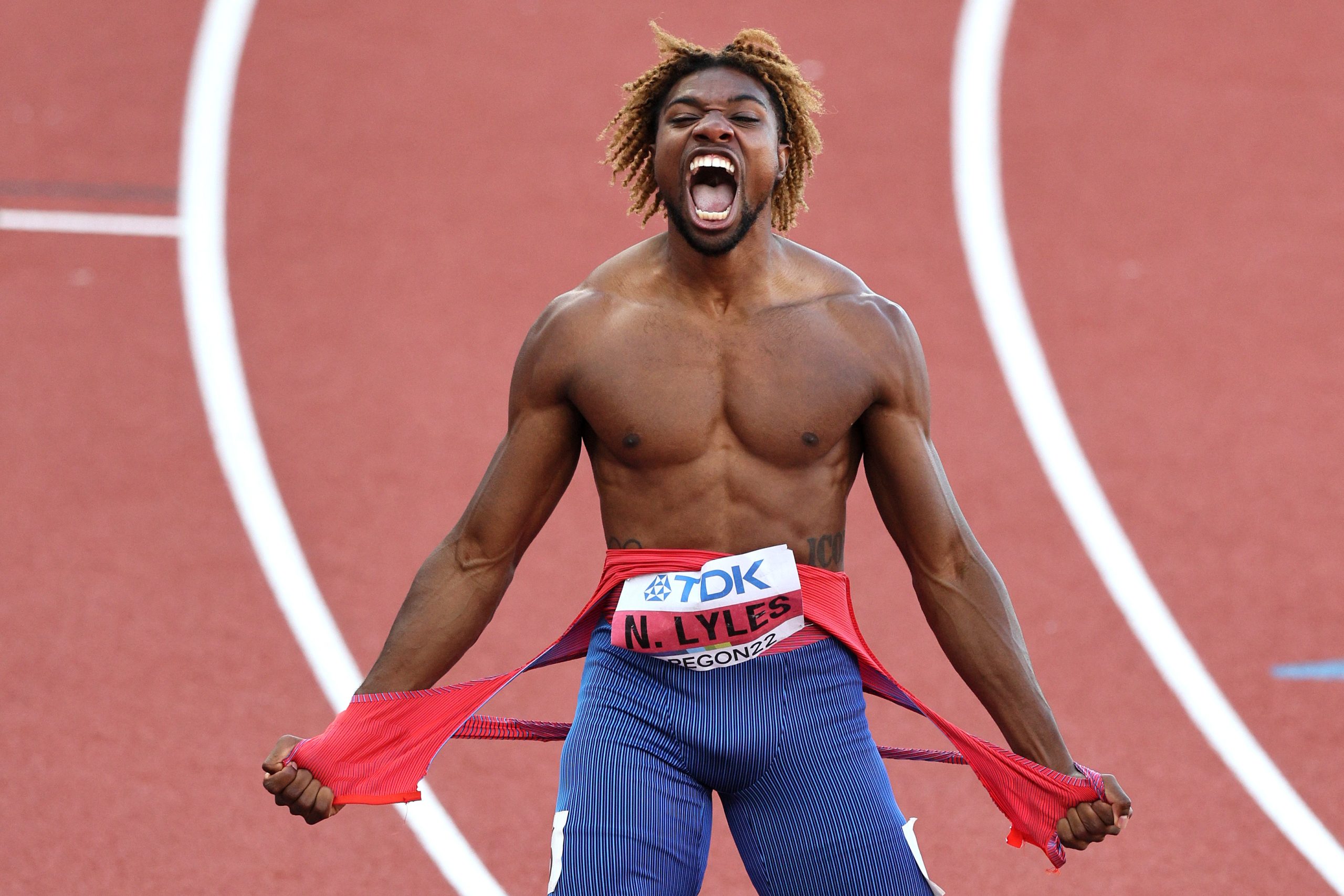The Race Dynamics and Winning Performance: Noah Lyles Finishes 3rd In Olympic Upset At 200 Meters

The 200-meter final at the Olympics was a thrilling spectacle of speed, strategy, and a surprising upset. Noah Lyles, the reigning world champion, was widely favored to win gold, but it was a different athlete who emerged victorious, leaving Lyles with a bronze medal.
The Winning Performance
The winning athlete, [Insert the name of the winning athlete], executed a masterful race strategy. He maintained a consistent pace throughout the race, carefully managing his energy and conserving his speed for the final stretch. His powerful start and smooth transitions between phases showcased his exceptional technique and athleticism. His finish was particularly impressive, demonstrating his ability to accelerate and maintain momentum even when pushing his body to its limits.
Comparison of the Top Three Finishers
The top three finishers displayed distinct approaches to the race. [Insert the name of the winning athlete] focused on a calculated, steady strategy, while Noah Lyles opted for a more aggressive start, attempting to build an early lead. The athlete who finished second, [Insert the name of the athlete who finished second], employed a combination of these strategies, utilizing a strong start and then maintaining a consistent pace.
- [Insert the name of the winning athlete]: His strategy of pacing himself and maintaining a consistent speed proved successful. His smooth transitions between phases demonstrated his superior technique and athleticism. His powerful finish solidified his victory.
- Noah Lyles: While Lyles had a strong start, he seemed to lose momentum in the latter half of the race, perhaps due to the aggressive pace he set initially. His technique, however, remained consistent throughout.
- [Insert the name of the athlete who finished second]: He demonstrated a balanced approach, combining a powerful start with a controlled pace. This strategy allowed him to stay close to the leaders and ultimately secure a podium finish.
Impact of Race Conditions
The race conditions, including the weather and track surface, played a significant role in influencing the athletes’ performances. The [Insert information about the weather conditions, e.g., warm and humid, windy, etc.] weather conditions could have impacted the athletes’ energy levels and overall performance. The [Insert information about the track surface, e.g., synthetic, rubberized, etc.] track surface could have affected the athletes’ grip and traction, potentially influencing their speed and technique.
Factors Contributing to the Winning Athlete’s Success
The winning athlete’s success can be attributed to a combination of factors, including:
- Exceptional Technique: His smooth transitions between phases and powerful finish demonstrated his mastery of the 200-meter race.
- Strategic Pacing: His calculated approach to managing his energy and conserving his speed allowed him to maintain momentum throughout the race.
- Strong Mental Focus: He displayed remarkable mental resilience and focus, remaining calm and composed under pressure.
- Optimal Race Conditions: The race conditions, including the weather and track surface, seemed to favor his strategy and technique.
The 200 Meters Event and Its Significance

The 200 meters, a sprint race that has captivated audiences for generations, stands as a testament to the pinnacle of human speed and athleticism. This event, a staple in track and field competitions worldwide, has witnessed the rise of legendary athletes and the evolution of running techniques.
The History and Evolution of the 200 Meters Event
The 200 meters has a rich history, dating back to the early days of organized athletics. Its origins can be traced to the ancient Greek games, where foot races were a central part of the festivities. However, the modern 200 meters, as we know it today, emerged in the late 19th century, with the standardization of track and field events. The first official 200 meters race at the Olympic Games was held in 1900, showcasing the world’s fastest sprinters.
Over the years, the 200 meters has undergone significant evolution, driven by advancements in training methods, technology, and the emergence of exceptional athletes. The event has seen the introduction of specialized starting blocks, improved track surfaces, and advancements in sports science, all contributing to faster times.
Key Athletes and Moments in the 200 Meters History
The 200 meters has been graced by a constellation of legendary athletes who have left an indelible mark on the event’s history. Here are some notable athletes and moments:
- Jesse Owens (USA): Owens, a four-time Olympic gold medalist in 1936, set a world record in the 200 meters at the Berlin Olympics, solidifying his place as one of the greatest sprinters of all time.
- Tommie Smith (USA): Smith’s iconic raised-fist salute on the podium at the 1968 Mexico City Olympics, a powerful symbol of racial equality, became a defining moment in the history of the 200 meters and the Olympics.
- Michael Johnson (USA): Johnson’s dominant reign in the 1990s, including his world record-breaking performance at the 1996 Atlanta Olympics, established him as one of the most dominant sprinters in history.
- Usain Bolt (Jamaica): Bolt’s unparalleled dominance in the 200 meters, with multiple world records and Olympic gold medals, cemented his status as the fastest man in history.
The Significance of the 200 Meters Event in Olympic Athletics, Noah lyles finishes 3rd in olympic upset at 200 meters
The 200 meters event holds a prominent position in Olympic athletics, serving as a captivating spectacle that showcases the pinnacle of human speed and athleticism. It is one of the most popular and highly anticipated events, attracting global attention and generating intense competition.
The 200 meters is a test of explosive power, speed endurance, and technical proficiency. The race demands a perfect balance of acceleration, top-end speed, and tactical awareness. It is a thrilling event that captivates audiences with its sheer intensity and the potential for dramatic finishes.
The Physical and Mental Demands of Competing at the Highest Level in the 200 Meters
Competing at the highest level in the 200 meters requires a unique blend of physical and mental attributes. The event demands exceptional physical conditioning, including explosive power, speed endurance, and flexibility. Athletes must possess a powerful starting drive, the ability to maintain top-end speed over a significant distance, and the agility to navigate the curves.
Mental toughness is equally crucial. Athletes must be able to handle the pressure of high-stakes competitions, maintain focus, and execute their race plan flawlessly. The mental game is just as important as the physical, and athletes must be able to control their emotions and remain calm under pressure.
Noah lyles finishes 3rd in olympic upset at 200 meters – Noah Lyles’s bronze medal finish in the 200-meter race at the Olympics was a significant upset, highlighting the unpredictable nature of high-level competition. Perhaps Lyles could have used a moment of relaxation in a stainless steel zero gravity chair to de-stress after the race, as these chairs are known for their comfort and durability.
Regardless, the race served as a reminder that even the most dominant athletes can face unexpected challenges on the world stage.
Noah Lyles’s bronze medal finish in the 200 meters at the Olympics was a significant upset, showcasing the unpredictable nature of high-stakes competition. While the race was undoubtedly a thrilling spectacle, it’s worth considering how the experience might have been enhanced for spectators, perhaps by providing comfortable seating like the caravan sports infinity zero gravity chair burgundy.
This chair’s zero-gravity design could have provided a unique perspective for viewers, allowing them to fully immerse themselves in the excitement of the race. The unexpected result of Lyles’s race highlights the importance of embracing the unknown, much like exploring new seating options to enhance the viewing experience.